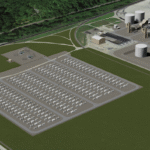Why Energy Efficiency Matters
As the world continues to grapple with climate change, energy efficiency has become a top priority for homeowners, builders, and policymakers alike. Renovations offer a unique opportunity to significantly reduce energy consumption, lower energy bills, and minimize environmental impact. In this article, we’ll explore the key considerations for achieving energy-efficient renovations.
Assessing Your Home’s Energy Profile
Before embarking on a renovation, it’s essential to understand your home’s energy profile. This involves identifying areas of energy waste, inefficient systems, and opportunities for improvement. A thorough assessment will help you prioritize your renovation efforts and allocate resources effectively.
Conducting an Energy Audit
A professional energy audit can help you identify potential issues and provide a detailed report outlining recommendations for improvement. This includes:
- Inspecting the building envelope (walls, roof, windows, and doors) for air leaks and insulation
- Assessing the heating, ventilation, and air conditioning (HVAC) system’s efficiency and performance
- Testing for moisture and humidity levels to identify potential issues with insulation, walls, or flooring
Designing for Energy Efficiency
When designing your renovation, consider the following energy-efficient strategies:
Passive Design Principles
Passive design principles involve designing your home to maximize natural light, heat, and ventilation. This can be achieved through:
- Strategic window placement and size
- Using materials with high thermal mass (e.g., concrete, stone, and brick) to absorb and release heat
- Incorporating clerestory windows and skylights to bring in natural light
Building Envelope Upgrades
Upgrading your home’s building envelope can significantly reduce energy consumption. Consider:
- Installing energy-efficient windows and doors
- Replacing old insulation with high-performance insulation
- Applying weatherstripping and caulk to seal gaps and cracks
Systems and Appliances
Efficient systems and appliances can make a significant impact on your energy consumption. Consider upgrading or replacing:
HVAC Systems
High-Efficiency HVAC systems, such as heat pumps or solar-powered systems, can reduce energy consumption by up to 50%.
Lighting
LED lighting, smart lighting systems, and occupancy sensors can significantly reduce energy consumption and improve lighting efficiency.
Appliances and Fixtures
Look for energy-star-rated appliances and fixtures, such as low-flow showerheads and toilets, to reduce water consumption and energy usage.
Conclusion
Energy-efficient renovations offer a unique opportunity to reduce your environmental footprint, lower energy bills, and create a more sustainable living space. By following the guidelines outlined in this article, you can make informed decisions about your home’s energy efficiency and create a path towards a more sustainable future.
FAQs
What are the most effective ways to reduce energy consumption in my home?
Conducting an energy audit, upgrading the building envelope, and installing energy-efficient systems and appliances are all effective ways to reduce energy consumption in your home.
What are some common energy-saving mistakes to avoid in my renovation?
Common mistakes include: failing to inspect and seal gaps and cracks, ignoring the importance of thermal mass, and neglecting to assess and upgrade HVAC systems.
How can I measure the success of my energy-efficient renovation?
Monitor your energy consumption and compare it to pre-renovation levels to measure the success of your energy-efficient renovation. You can also track your energy bills and adjust your systems accordingly.





.png?w=150&resize=150,150&ssl=1)

.png?w=150&resize=150,150&ssl=1)